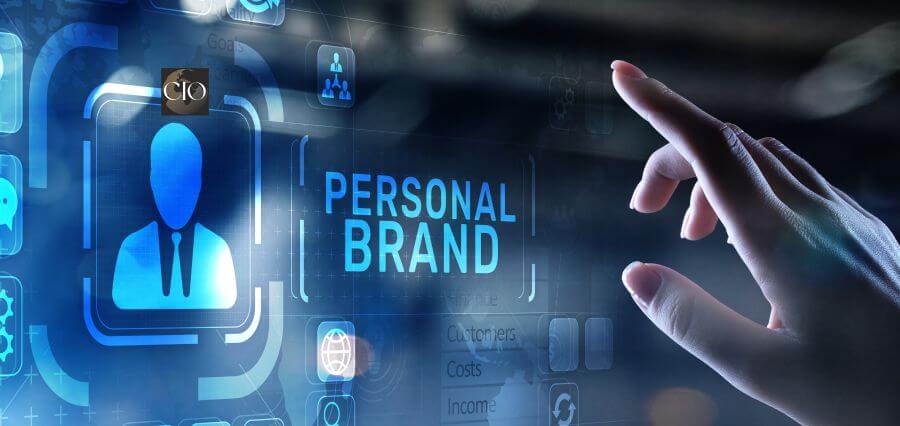Building a personal brand today is more relevant than ever within today’s fast-paced digital environment. It has quite a lot to do with a very unique combination of skills, experiences, and a bit of personality that one can bring out into his professional life. This now impacts how people see you and your career opportunities and networking potential, as well as your overall success.
Understanding Personal Branding
Personal branding is, in simple words, the way people market themselves. Just as a company builds brands to differ its products, a person can, too, by creating a personal brand that distinguishes him or herself in a specific field of specialization.
This may be accomplishing a task by highlighting various strengths, values, or unique qualities, which make one special in their area of specialization. In a survey by CareerBuilder, 70% of employers use social media to screen applicants before hiring them. This just proves that it helps to manage an online presence right.
The Change of Strategy
The old personal branding strategy was on self-promotion and visibility. The changing strategy now is that the focus is highly on authenticity and connection rather than just being visible. A personal brand today should tell a story that will connect with others instead of just posting achievements or qualifications. This brings people to understand their audience better.
Storytelling: Heart of Personal Branding
However, storytelling is one of the foundational elements of a personal brand. People connect with stories much more than with statistics or facts. As long as an experience-be it success or failure-helps create relatability and trust, sometimes just sharing an experience can work. For example, someone who shares their journey through many struggles in their career might inspire others passing through such situations.
According to a Stanford University study, there is a 22 times better provision for recall than that of mere fact. That statistical figure emphasizes the impact of storytelling on having one stick in one’s people’s minds. Personal stories woven into professional discussions have the effect of growing relationships in a close manner with the audience.
Savvy Use of Social Media
If used judiciously, social media is a prized tool of personal branding. It cannot solely be used for self-promotion but also it enables engagement with a community. This is done by posting the right things related to one’s expertise, commenting about industry trends, and joining in the conversation, putting someone in a thought leadership position.
Research study also shows that 54% of social browsers browse products they’re likely to buy on social media. Social media also has its trends for personal branding. In many instances, the basis of employment or collaboration is founded from what other people say in social media about you. It thus means that it is crucial to maintain professionalism and authenticity online.
Consistency is Key
Ensure that your personal branding is consistent on all platforms. Be it through visual mediums like logos and color schemes or even the tone of voice one uses while posting, the idea of maintaining a consistent image helps to reinforce recognition and trustworthiness. Lucidpress found that consistent branding can increase revenue up to 23%. The statistic merely illustrates how consistency not just enhances brand identity but also gives way for tangible outcome.
Building Relationships
Newness is a highlighted difference in the new way of networking, which focuses more on cultivating real relationships rather than just mere connections or business contacts. Meaningful relations result from engaging with others by providing insights or offering assistance.
Networking events, online and offline, will be used to arrange meetings with like-minded people, whether they share common interests or common goals. These contacts can be followed up with personalized messages, and simple thanks for a conversation can leave an unforgettable memory.
Continuous learning and adaptation
Personal branding is also a dynamic process that changes with time. For this reason, to remain updated in the world arena and new trends in any industry, one has to learn new skills continuously. Doing a workshop, web, or online course not only enhances one’s knowledge but proves the commitment to growth.
As cited by LinkedIn’s Workplace Learning Report, 94% of employees would consider staying at a company longer if it spent more time and resources on enhancing employees’ learning and development. This still says much about the fact that continuous learning benefits people, as it also raises their appeal to potential employers.
Authentic Engagement
Authenticity in personal branding is a modern attribute. People are interested in authentic stories of others’ journeys. Failures, not only triumphs, make others approachable to narrate stories.
Active engagement of the audience requires commented responses, questions, and gratitude toward the feedback of an audience. A two-way communication process builds community and loyalty with followers.
Conclusion
Building a personal brand is less about self-promotion and more about how to thoughtfully approach it with authenticity, storytelling, and true engagement. Today, with all that such a presence can mean for a career, building online presence through such strategy tends to lead to meaningful connections and opportunities.
Leverage your social media wisely, maintain consistency across channels, invest in continuous learning, and connect with others authentically to build a personal brand that reflects who they are and resonates so much with others. All this can easily translate into laying down the foundations for success, not only in professional life but also in bigger communities.

